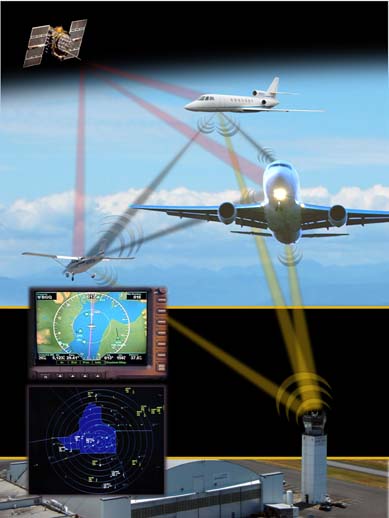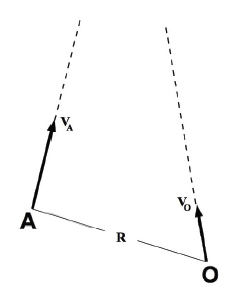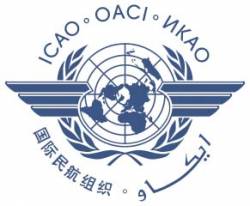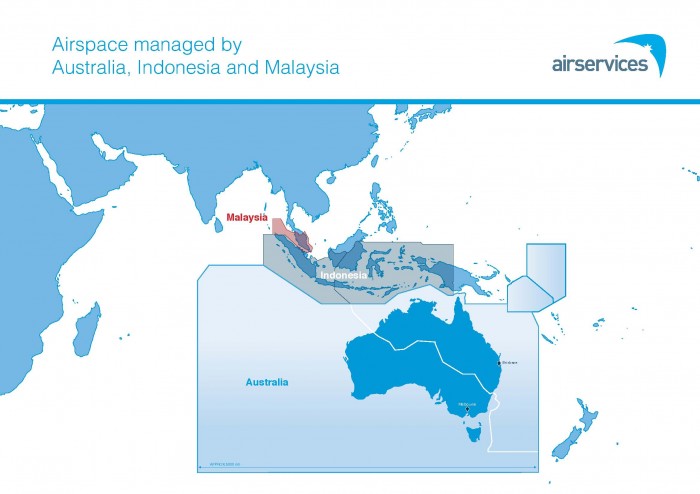 Implementation of Automatic Dependent Surveillance-Broadcast system. Federal Aviation Administration graphic
Implementation of Automatic Dependent Surveillance-Broadcast system. Federal Aviation Administration graphic
The World Radiocommunication Conference (WRC) taking place in Geneva, Switzerland, agreed Wednesday (November 11, 2015) to allocate RF spectrum for global flight tracking in civil aviation.
The World Radiocommunication Conference (WRC) taking place in Geneva, Switzerland, agreed Wednesday (November 11, 2015) to allocate RF spectrum for global flight tracking in civil aviation.
The frequency band 1087.7-1092.3 MHz has been allocated to the aeronautical mobile-satellite service (Earth-to-space) for reception by space stations of automatic dependent surveillance-broadcast (ADS-B) reports from aircraft transmitters.
The band is currently being used for the transmission of ADS-B signals from aircraft to terrestrial stations within line-of-sight. The World Radiocommunication Conference (WRC-15) has now allocated this frequency band in the Earth-to-space direction to enable transmissions from aircraft to satellites. This extends ADS-B signals beyond line-of-sight to facilitate reporting the GNSS position of aircraft equipped with ADS-B anywhere in the world, including oceanic, polar, and other remote areas.
WRC-15 recognized that, as the International Civil Aviation Organization (ICAO) develops standards and recommended practices (SARP) for systems enabling position determination and tracking of aircraft, the performance criteria for satellite reception of ADS-B signals will also need to be addressed by ICAO.
The action by the WRC, organized by the United Nations–affiliated International Telecommunication Union (ITU), follows the disappearance and loss of Malaysian Airlines Flight MH370 in March 2014 with 239 people on board. The incident spurred worldwide discussions on global flight tracking and the need for coordinated action by ITU and other relevant organizations.
In its special meeting on global flight tracking, which took place in Montréal in May 2014, ICAO encouraged ITU to take urgent action to provide the necessary spectrum allocations for satellites to support emerging aviation needs. In October 2014, the ITU Plenipotentiary Conference meeting in Busan, Republic of Korea, instructed WRC-15 to consider global flight tracking in its agenda.
“In reaching this agreement at WRC-15, ITU has responded in record time to the expectations of the global community on the major issue concerning global flight tracking,” said ITU Secretary-General Houlin Zhao. “ITU will continue to make every effort to improve flight tracking for civil aviation.”
“The allocation of frequencies for reception of ADS-B signals from aircraft by space stations will enable real-time tracking of aircraft anywhere in the world,” said François Rancy, Director of the ITU Radiocommunication Bureau. “We will continue to work with ICAO and other international organizations to enhance safety in the skies.”





